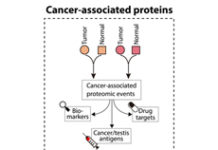
The COVID-19 vaccine is currently recommended for most adults. However, some individuals should not have the vaccine OR should talk with their healthcare provider about potential vaccine risks before they receive the vaccine. These special populations include:
People with Cancer-In Active Treatment
- Considered to be at a higher risk for severe COVID.
- Should be vaccinated according to CDC/local priority groups for vaccine distribution.
- Talk with your healthcare provider about options at your local treatment center for vaccination OR get information from your local health department about vaccine options in your community.
Cancer Survivors-Not In Active Treatment
- You could be at a higher risk for severe COVID.
- Your risk can vary based on many factors including the type of cancer you were treated for, how long since you last had treatment, the types of treatment you received, long-term and late side effects you may be experiencing, and other co-existing medical issues.
- Unclear what category the individuals may fall into with current CDC/local priority groups for vaccine distribution.
- Talk with your healthcare provider about options at your local treatment center for vaccination OR get information from your local health department about vaccine options in your community.
Pregnant Women
- Pregnant women were not included in the clinical trials for the vaccine; thus there is not data about the effect of the vaccine on the health of the fetus OR if the effectiveness of the vaccine is changed at all due to pregnancy.
- However, The American College of Obstetricians and Gynecologists (ACOG) recommends that women who are part of the priority groups defined by the CDC’s Advisory Committee on Immunization Practices (ACIP) be offered vaccines. This includes pregnant healthcare and front-line workers.1
- Pregnant women should talk with their healthcare provider and weigh the risks and benefits of receiving the COVID-19 vaccine during their pregnancy.
Breastfeeding Women
- Breastfeeding women were also not studied in the initial clinical trials.
- mRNA vaccines are not believed to be a risk to a breastfeeding infant.
- If you are breastfeeding and in one of the priority groups (healthcare/essential worker or have co-existing medical issues), you can consider the vaccine.2
Children
- Children were not included in the first round of clinical trials for the vaccines that are currently approved under Emergency Use Authorization.
- Clinical trials are underway studying the use and safety of vaccines in children.
- Children aged 16 and older (Pfizer vaccine) and 18 and older (Moderna) can receive the vaccine.
- Children over 16 are in group 1C for priority to receive the vaccine.
- If your child (aged 16 and up) has pre-existing medical conditions that may put them at higher risk for severe COVID, talk with your pediatrician about the options for vaccine, risks and benefits.
Those Who Have Had COVID-19
- We don’t know how long antibodies provide protection after a case of COVID-19.
- You should be vaccinated if you have had COVID-19.
- However, you should still get a vaccine when you are eligible.
The distribution and availability of vaccines is still unfolding. If you have special concerns about your personal history or other medical conditions that may impact your ability to have the COVID-19 vaccine, talk with your healthcare provider and make a plan before it’s your turn to be vaccinated.
1. https://www.scientificamerican.com/article/why-covid-vaccines-are-likely-safe-for-pregnant-people/
2. https://www.cdc.gov/coronavirus/2019-ncov/vaccines/recommendations/pregnancy.html
Christina is a clinical oncology social worker and the psychosocial content editor at OncoLink. Christina blogs about resources available to the cancer community, as well as general information about coping with cancer practically, emotionally, and spiritually. Christina is also an instructor at the Penn School of Social Policy and Practice. In her spare time, she loves to knit and volunteer with her therapy dogs, Linus and Huckleberry. She also loves to travel, cook and is an avid Philly sports fan.





